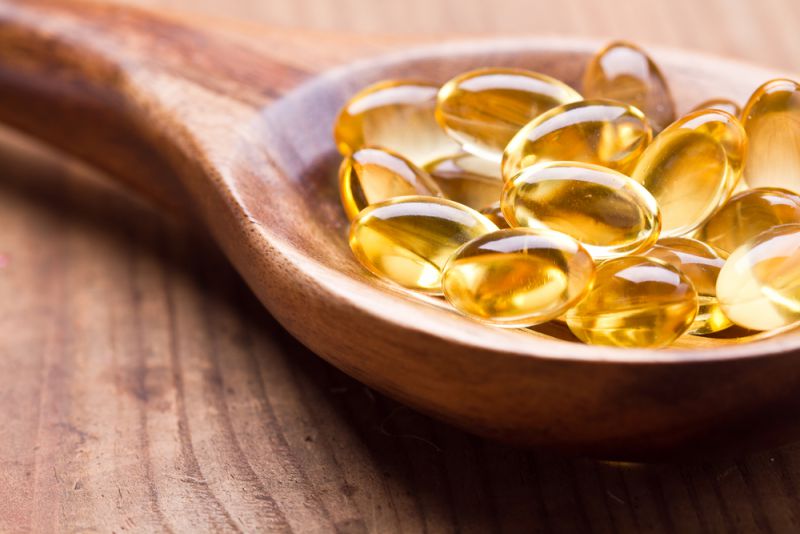Fish Oil and Pregnancy

Specific varieties of fish are good sources of omega-3 fatty acids, a form of polyunsaturated fats that have numerous health benefits for Australian mums. These kinds of fats are not naturally produced in the human body, which is why mothers are advised to supplement their diet by eating fish from healthy sources such as salmon, sardines, anchovies, herring, and tuna. Omega-3 enriched egg-shaped supplements are also a good source of these essential fatty acids.
Australian mothers are recommended to eat more fish rich in omega-3 fatty acids because of their numerous health benefits for both mum and baby. Omega-3 fatty acids are effective in reducing inflammation, ADHD, decreases the risk for Alzheimer’s disease, dementia, and also helps to support cardiovascular health. However, you shouldn’t be eating all kinds of fish if you want to obtain the benefits of omega-3 fatty acids. There are some species of fish that, when eaten, are actually more dangerous. Fish liver, cod liver, shark, king mackerel, swordfish, and shark are examples of fish that shouldn’t be consumed. They contain high levels of mercury which are toxic for your nervous system, as well as that of your unborn child.
Fish oil supplements
 Fish oil is an excellent, safe source of omega-3 fatty acids, and has become the supplement of choice for many Australian mums. Integrating fish oil capsules into your diet is a wonderful way of getting all the health benefits of eating fish rich in omega-3 fatty acids. Keep in mind that there are 2 kinds of fish oil supplements in the market: there are varieties that are manufactured from healthy fish, also referred to as omega-3 supplements, and are completely safe to consume during your pregnancy.
Fish oil is an excellent, safe source of omega-3 fatty acids, and has become the supplement of choice for many Australian mums. Integrating fish oil capsules into your diet is a wonderful way of getting all the health benefits of eating fish rich in omega-3 fatty acids. Keep in mind that there are 2 kinds of fish oil supplements in the market: there are varieties that are manufactured from healthy fish, also referred to as omega-3 supplements, and are completely safe to consume during your pregnancy.
But avoid fish oil supplements that are made from harmful fish sources, such as those mentioned earlier including cod liver oil. These are not safe to take during pregnancy due to possible poisoning from its mercury content. They also contain high levels of the retinol version of Vitamin A. This kind of vitamin shouldn’t be taken by pregnant women because it increases the risk of birth defects.
Advantages of fish oil for pregnancy
Australian mums are now taking more fish oil supplements for the myriad of health benefits they provide:
1. Increased cognitive performance
 Fish oil supplements are beneficial in improving your baby’s eye’s and brain. Children whose mums take fish oil supplements during pregnancy also tend to have better hand-eye coordination, scored better on aptitude tests, and had better cognitive skills.
Fish oil supplements are beneficial in improving your baby’s eye’s and brain. Children whose mums take fish oil supplements during pregnancy also tend to have better hand-eye coordination, scored better on aptitude tests, and had better cognitive skills.
2. Nutrition for the mum and baby
 Good quality fish oil is a rich source of many nutrients and vitamins including Vitamins A and D, and omega-3 fatty acids Feeding these to your baby by taking supplements will ensure optimum development of your child.
Good quality fish oil is a rich source of many nutrients and vitamins including Vitamins A and D, and omega-3 fatty acids Feeding these to your baby by taking supplements will ensure optimum development of your child.
3. Baby’s improved mood
 Mums who regularly consume fish oil supplements contribute to a more stable mood for their bub. Taking fish oil throughout pregnancy and during breastfeeding will ensure that your little one has reduced tantrums and will be happier and healthier.
Mums who regularly consume fish oil supplements contribute to a more stable mood for their bub. Taking fish oil throughout pregnancy and during breastfeeding will ensure that your little one has reduced tantrums and will be happier and healthier.
4. Newborn will have strengthened immunity
 Omega-3 fatty acids found in fish oil are a powerful anti-inflammatory agent. The other vitamins and minerals found in the oil will also strengthen your child’s immunity against diseases such as the common cold, cough, and flu.
Omega-3 fatty acids found in fish oil are a powerful anti-inflammatory agent. The other vitamins and minerals found in the oil will also strengthen your child’s immunity against diseases such as the common cold, cough, and flu.
5. Safer pregnancy and labour
 You can also benefit from taking fish oil benefits because omega-3 fatty acids will reduce your risk for premature birth, preeclampsia (a condition wherein pregnant women suffer from high blood pressure), and lead to an increase in birth weight which makes labour more difficult for mother and child. On the other hand, the risk for not getting enough fish oil during pregnancy can lead to bubs who score lower on cognitive tests and suboptimum performance with communication skills, fine motor skills, prosocial behavior, and social development.
You can also benefit from taking fish oil benefits because omega-3 fatty acids will reduce your risk for premature birth, preeclampsia (a condition wherein pregnant women suffer from high blood pressure), and lead to an increase in birth weight which makes labour more difficult for mother and child. On the other hand, the risk for not getting enough fish oil during pregnancy can lead to bubs who score lower on cognitive tests and suboptimum performance with communication skills, fine motor skills, prosocial behavior, and social development.
How much fish oil should pregnant mums take?
 Pregnant mums are usually advised to supplement their diet by consuming fish oil supplements, provided that it’s in the right dose. For pregnant and lactating women, the ideal dosage is just 300mg each day. If you are already eating healthy sources of fish fat such as what we mentioned earlier, there’s no need to take fish oil supplements.
Pregnant mums are usually advised to supplement their diet by consuming fish oil supplements, provided that it’s in the right dose. For pregnant and lactating women, the ideal dosage is just 300mg each day. If you are already eating healthy sources of fish fat such as what we mentioned earlier, there’s no need to take fish oil supplements.
A general dose of 2 up to 3 servings of fish oil each week are safe for pregnancy and can provide you with all the health benefits of this wonderful fat without having to take the supplements as well. Be careful not to consume too much fish oil since it may cause problems with blood clotting. The recommended dosage for fish oil during pregnancy is 110mg/day for women 14-18 years old, while it’s 115mg/day for women 19-50 years of age.
Fish oil during breastfeeding
 Once you have given birth, your bub can also benefit from your fish oil intake because he/she will receive the omega-3 fatty acids through your breast milk. After pregnancy, continuing your intake of fish oil supplements is also recommended since each pregnancy further depletes your body of omega-3 fatty acids because you pass it on to your baby through breastfeeding. The recommended intake of fish oil during lactation is 140mg/day for women 14-18 years old, while it’s 145mg/day for women 19-50 years old.
Once you have given birth, your bub can also benefit from your fish oil intake because he/she will receive the omega-3 fatty acids through your breast milk. After pregnancy, continuing your intake of fish oil supplements is also recommended since each pregnancy further depletes your body of omega-3 fatty acids because you pass it on to your baby through breastfeeding. The recommended intake of fish oil during lactation is 140mg/day for women 14-18 years old, while it’s 145mg/day for women 19-50 years old.
Safety precautions
If you aren’t getting enough fish in your diet, your doctor may recommend to take some fish oil supplements. It’s important to keep in mind to consume only the best quality fish oil, since eating fresh fish may contain certain environmental toxins such as mercury, which are eliminated during the processing of fish oil since quality raw materials are used along with a refining process.
Pregnant mothers are advised to remove fat and skin from healthy fish sources before cooking; and to opt for steaming, baking, and broiling fish to further reduce pollutant levels. It’s recommended to listen to your health care provider or what your physician recommends when it comes to taking fish oil supplements. If it’s your first time to take it during pregnancy, watch out for any possible side effects because some mothers experience an allergy to fish oil.
There are other side effects that may also develop, such as heart arrhythmia, chills, fever, chest pain, and flu-like symptoms. If you experience any of these, contact your doctor right away. Just like any other kind of supplement, it’s possible that fish oil may interact with other medications you are taking. Let your doctor know if you are taking drugs before you start with fish oil supplements, especially if these are estrogens, blood thinners, beta-blockers, or diuretics.
There are many brands of fish oil in the market, and it’s important to choose wisely. A reputable manufacturer can provide you with documentation of lab results that can prove its purity levels, showing you that it’s completely safe to take during pregnancy. Look out for the characteristics of fish oil before you start to take it regularly. If the fish oil has a fish smell, this means that it may have degraded over time and became rancid. Good quality fish oil supplements shouldn’t smell fishy. Additionally, fish oil shouldn’t taste fishy either. Poorly manufactured fish oil supplements have an artificial flavor identified by a strong odour, since fillers may have been used to get rid of the smell of rancid oil.
Dosage Source: National Health and Medical Research Council – Australian Government


